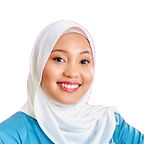
About
ABOUT ASPD
The Asian Society of Pediatric Dermatology (ASPD) is a non-stock, non-profit organization of the Pediatric Dermatological Interest Groups of Singapore and neighbouring Asia, devoted to clinical service, training and research in pediatric dermatology, as well as establishing linkages and collaborations and fostering camaraderie with other member interest groups.
Our Objectives
Provide a venue for exchange of ideas, best clinical practices, innovations and updates among member countries
Promote international recognition of the society in other parts of the world
Foster camaraderie among society members and colleagues
Conduct research locally, regionally and internationally, with topics relevant to each country
Establish accreditation, scholarships, fellowship grants, and awards to deserving members, faculty, practitioners and trainees
Promote excellence in Pediatric dermatological training and practices among member countries
Establish linkages with other countries to promote the sharing of teaching and research facilities, opening venues for exchange trainees (residents/fellows), exchange faculty or dermatological practitioners
HISTORY
The history of the Asian Society of Pediatric Dermatology (ASPD)
During the 2015 RSMPD in Bangkok, Thailand, a group of leading pediatric dermatologists from South East Asia (Indonesia, Malaysia, Philippines, Singapore and Thailand) and Hong Kong held an informal meeting on a dinner cruise on the scenic Chao Phraya River to discuss the setting up of a more binding Asian pediatric dermatology society. This group was given the name, Asian Pediatric Dermatology Interest Group (APDIG), to expand membership to other countries throughout Asia.
The APDIG held its first official business meeting in Singapore, during the 22nd Regional Conference of Dermatology (RCD). The attendees were leading pediatric dermatologists from Hong Kong, Indonesia, Malaysia, Philippines, Singapore, and Thailand. Future plans for the society were made including official registration of the group in Singapore, and setting up of research and education sub-groups within the APDIG. These members met up again at the World Conference of Pediatric Dermatology held in Chicago, USA, in July 2017. This time, besides the initial founding members, representatives from China, India, and Taiwan were also present. In view of the inclusion of more Asian countries, the group's name was changed to the "Asian Society of Pediatric Dermatology". The society was officially registered with the Registry of Societies, Singapore in October 2018.

The history of the Regional Scientific Meeting of Pediatric Dermatology (RSMPD)
The Regional Scientific Meeting of Pediatric Dermatology (RSMPD) was first organized in 1993 in Bali, Indonesia, by Prof. Siti Aisah. The two great senior dermatologists who had the foresight to develop pediatric dermatology in South East Asia were Prof. AR Orange from the Netherlands and Prof. Yamamoto from Japan. The meeting had the support of Dr. Sjaiful Dali, and Dr. Eddy Joesoef from the University of Indonesia's Dermatovenerology department, and the country's Dermatovenereology Society.
At the 2nd RSMPD, held in Jakarta, Indonesia in 1996, Prof. Siti Aisah strove to invite many excellent teachers in the field of pediatric dermatology from around the world, as well as prominent pediatric dermatologists from South East Asia to support the growth of pediatric dermatology in South East Asia. It was at this meeting that a decision was made to rotate the meeting throughout the South East Asian countries.
Great strides were then taken by the various South East Asian countries to develop and promote pediatric dermatology and to promote friendship and collaboration among the pediatric dermatologists from South East Asia.
Subsequent RSMPD meetings were held in:
3rd RSMPD 1999
SINGAPORE
5th RSMPD 2004
KUALA LUMPUR, MALAYSIA
7th RSMPD 2012
JAKARTA, INDONESIA
9th RSMPD 2018
SINGAPORE
11th RSMPD 2023
DELHI, INDIA

4th RSMPD 2001
BANGKOK, THAILAND
6th RSMPD 2007
MANILA, PHILIPPINES
8th RSMPD 2015
BANGKOK, THAILAND
10th RSMPD 2021
KUALA LUMPUR, MALAYSIA

About
BOARD OF DIRECTORS
Chairperson

Donna Sarrosa
(Philippines)
Vice-Chairperson

Rashmi Sarkar
(India)
Members

Ma Lin
(China)

Siriwan Wananukul
(Thailand)

David Luk
(Hong Kong)

Ellis Hon
(Hong Kong)

Surabhi Sinha
(India)

Tay Yong Kwang
(Singapore)

About
EXECUTIVE COMMITTEE
President

Mark Koh
(Singapore)
Vice-President

Leong Kin Fon
(Malaysia)
General Secretary
Assistant General Secretary

Srie Prihianti
(Indonesia)

Cindy Jao-Tan
(Philippines)
Vice-Treasurer
Treasurer

Lynette Wee
(Singapore)

Nisha Chandran
(Singapore)
Members

Anupam Das
(India)

Wanida Limpongsanurak
(Thailand)

July Rahadja
(Indonesia)

Henrietta Albela
(Malaysia)

Maria Lourdes Palmero
(Philippines)

Emily Gan
(Singapore)

About

COMMITTEES
Membership Committee
The membership committee is involved in
(1) ensuring that all members of the ASPD are correctly categorised according to their respective membership status
(2) boosting the recruitment of new members to join the ASPD
(3) reviewing membership benefits on a timely basis
(4) increasing membership in Asia and globally

Co-Chair
Rashmi Sarkar
(India)

Co-Chair
Nisha Chandran
(Singapore)

Ashleigh Chu
(Hong Kong)

Wilsie Walinsundin
(Philippines)

Chonnakarn Sukhneewat
(Thailand)

Surabhi Sinha
(India)

Mimi Wong
(Malaysia)

Indah Maharani
(Indonesia)

Wee Aileen
(Malaysia)

Inne Arline Diana
(Indonesia)

Emily Gan
(Singapore)

Angela Esguerra
(Philippines)

Peter Yu Yu
(Taiwan)
Sponsorship Committee
The Sponsorship Committee is responsible for developing and managing the ASPD’s sponsorship strategies. Our objective is to establish and build constructive collaborations with existing and new industry partners to support the ASPD in its initiatives and programmes.

Co-Chair
Lynette Wee
(Singapore)

Co-Chair
Nur Syazwin
(Malaysia)

July Iriani Rahardja
(Indonesia)

Charmaine Lim
(Singapore)

Lucinda Tan
(Singapore)
Education Committee
The ASPD education committee serves to promote academic activities to share knowledge amongst members. The members organize the following :
(1) Educational webinars (regional and international speakers will be invited to share their expertise every quarterly in a given topic)
(2) Quiz cases (members can submit dermatology cases which can be published in the Asian Journal of Pediatric Dermatology)
(3) Grey case webinars (complex cases to be discussed with an expert panel, some with dermatopathology discussion)

Co-Chair
July Rahadja
(Indonesia)

Co-Chair
Emily Gan
(Singapore)

Dharshini Sathishkumar
(India)

Suci Widhiyati
(Indonesia)

Carmela
Dayrit-Castro
(Philippines)

Rashmi Sarkar
(India)

Leong Kin Fon
(Malaysia)

Nina Gabaton
(Philippines)

Samipa Mukherjee
(India)

Mimi Wong
(Malaysia)

Peter Yu Yu
(Taiwan)

Surabhi Sinha
(India)

Chong Jin Ho
(Singapore)

Dedianto Hidajat
(Indonesia)

May Liau
(Singapore)
Outreach Committee
The ASPD Outreach Committee aims to develop pediatric dermatology in lesser-served communities in Asia, and to train healthcare providers to provide improved pediatric dermatology care in these areas. The committee organizes and runs the ASPD Pediatric Dermatology Introductory Online Course. The committee also aims to increase the knowledge of the public in common pediatric dermatological conditions through social media.

Co-Chair
Henrietta Albela
(Malaysia)

Co-Chair
Lynette Wee
(Singapore)

Donna Meryll Esguerra
(Philippines)

Deryne Paramita
(Indonesia)

Nur Syazwin
(Malaysia)

Fatima Jacinto
(Philippines)

July Rahadja
(Indonesia)

Charmaine Lim
(Singapore)

Maria Celi Rico-tantianpact
(Philippines)

Suci Widhiyati
(Indonesia)

Mark Koh
(Singapore)

Wilsie Walinsundin
(Philippines)

Deirdre Ooi
(Malaysia)

Vanessa Sharon
(Singapore)

Dedianto Hidajat
(Indonesia)

Leong Kin Fon
(Malaysia)
Research Committee
The ASPD Research Committee aims to bring together pediatric dermatologists from Asia to collaborate on research projects, ranging from case series, clinical trials, and translational research. The committee also manages the Asian Journal of Pediatric Dermatology (AJPD).

Co-Chair
Mark Koh
(Singapore)

Co-Chair
Srie Prihianti
(Indonesia)

Ellis Hon
(Hong Kong)

Retno Danarti
(Indonesia)

Krisha Montenegro
(Philippines)
_edited.png)
Therdpong Tempark
(Thailand)

Anupam Das
(India)

Jinia El Feghaly
(Lebanon)

Wilsie Walinsundin
(Philippines)

Phuong Nguyen
(Vietnam)

Dharshini Sathishkumar
(India)

Henrietta Albela
(Malaysia)

Lynette Wee
(Singapore)

Samipa Mukherjee
(India)

Cindy Jao-Tan
(Philippines)

Nisha Chandran
(Singapore)

Shivani Bansal
(India)

Fatima Jacinto
(Philippines)

Valerie Ho
(Singapore)

About
CONSTITUTION
1. NAME
1.1. This Society shall be known as the “ASIAN SOCIETY OF PEDIATRIC DERMATOLOGY”, hereinafter referred to as the “Society”.
2. PLACE OF BUSINESS
2.1. Its place of business shall be at “111 North Bridge Road, #21-01 Peninsula Plaza, Singapore 179098" or such other address as may subsequently be decided upon by the Council and approved by the Registrar of Societies. The Society shall carry out its activities only in places and premises which have the prior written approval from the relevant authorities, where necessary.
2.2. The Society will be registered under the Registry of Societies (ROS) in Singapore. The Society Office/Secretariat shall be located in Singapore.
3. VISION AND MISSION
The Society is a non-stock, non-profit organization of the Pediatric Dermatological Interest Groups of Singapore and neighboring Asia, devoted to clinical service, training and research in pediatric dermatology, as well as establishing linkages and collaborations and fostering camaraderie with other member interest groups.
4. OBJECTIVES
Its objectives are:
4.1. To provide a venue for exchange of ideas, best clinical practices, innovations and updates among member countries
4.2. To conduct research locally, regionally and internationally, with topics relevant to each country
4.3. To promote international recognition of the society in other parts of the world
4.4. To establish linkages with other countries to promote the sharing of teaching and research facilities, opening venues for exchange trainees (residents/fellows), exchange faculty or dermatological practitioners
4.5. To establish accreditation, scholarships, fellowship grants, and awards to deserving members, faculty, practitioners and trainees
4.6. To foster camaraderie among society members and colleagues
4.7. To promote excellence in Pediatric dermatological training and practices among member countries
5. FUNDS OF THE SOCIETY
5.1. Funds for the Society will be held in Singapore Dollars (SGD) in a bank account in Singapore.
5.2. 10% of the net profit derived from the organizing of the Asian Scientific Meeting of Pediatric Dermatology (ASMPD) shall be furnished to the Society and deposited into the bank account.
5.3. The Bank account shall be accessed by the Treasurer and Vice Treasurer. Written approval of the President, or Vice President, or Secretary General shall be required for transaction amounts higher than S$5,000.
6. MEMBERSHIP QUALIFICATION AND RIGHTS
6.1. The founding member countries of the ASPD are Hong Kong, India, Indonesia, Malaysia, Philippines, Singapore, Taiwan and Thailand. The pediatric dermatology societies / interest groups of other Asian countries can apply to be a ‘member’ country of the ASPD when there are more than 10 members from the country.
6.2. The ASPD will accept applications for membership from the member countries, other Asian countries and internationally.
6.3. Types of Membership
6.3.1. The membership of the Society shall consist of Ordinary Members, Affiliate Members and Industry Members.
6.3.2. Each member country will provide a panel of up to 3 members to form the Membership Committee. The Membership Committee decides on eligibility of registrants to be accepted as ordinary, affiliate or industry members. Both applicants from member and non-member countries can apply for ordinary, affiliate or industry membership.
6.3.3. “Ordinary" members shall consist of doctors who are paediatric dermatologists in their country OR who have undergone subspecialty training in paediatric dermatology. Ordinary members have voting rights and rights to hold EXCO positions as well as all entitlement enjoyed by “Affiliate” members.
6.3.4. “Affiliate” members shall be healthcare professionals who do not fall in the category of “ordinary” members. Affiliate members shall be entitled to discounted rates to attend the Asian Scientific Meeting of Pediatric Dermatology (ASMPD), have access to Members section of the Society website and mentorship or further training within the region.
6.3.5. “Industry” members shall be verified employees or representatives of partnering organisations, sponsors or pharmaceutical firms.
6.4. Rights of the Members
6.4.1. Opportunity to attend the Asian Scientific Meeting of Pediatric Dermatology (ASMPD)
6.4.2. Access to Society newsletter and journal
6.5. Duties of the Members
6.5.1. The Members shall pay the annual membership fee as determined by the EXCO
6.5.2. The Members shall support projects initiated by the Society
6.5.3. The Members shall submit articles and research papers for the Society newsletter, website and journals
7. ENTRANCE FEES, SUBSCRIPTIONS AND OTHER DUES
7.1. The entrance fee shall be determined by the EXCO from time to time. Membership into the ASPD will only be accepted upon payment of the determined entrance and subscription fee.
7.2. An annual subscription fee shall be determined by the Council from time to time. Under the Rules, fees have to be specified in order for approval. The membership committee reserves the right to expel any member who has accumulated arrears of 3 years of annual fees.
8. SUPREME AUTHORITY AND GENERAL MEETINGS
8.1. The supreme authority of the Society is vested in a General Meeting of the members.
8.2. An Annual General Meeting (AGM) shall be held within 6 months from the close of its financial year. The date of the AGM will be decided by the Executive Committee (EXCO).
8.3. The notice shall be sent to all ordinary and affiliate members only who are required to reply within two weeks from receiving such notice. The notice will be sent within 60 days of the specified date of the AGM.
8.4. The following points will be considered at the Annual General Meeting:
8.4.1. The previous financial year's accounts and annual report of the EXCO.
8.4.2. Where applicable, the election of office‑bearers for the following term.
8.5. Any member who wishes to place an item on the agenda of the AGM may do so provided he gives notice to the Secretary 30 days before the meeting is due to be held.
8.6 At other times, an Extraordinary General Meeting (EGM) can be called by the President on the request in writing of not less than 25% of the total voting membership or fifteen (15) voting members, whichever is the lesser, and may be called at any time by order of the EXCO. The notice in writing shall be given to the Secretary-General setting forth the business that is to be transacted. The Extraordinary General Meeting shall be convened within two (2) months from receiving this request to convene the Extraordinary General Meeting.
8.7. Voting by proxy shall not be allowed at all General Meetings.
8.8. The members may attend the meeting on a remote basis through the use of audio-visual electronic communication facility which enables all the members participating in the meeting to communicate concurrently with each other without any intermediary and to participate effectively in the meeting. The meetings may be held synchronously or asynchronously, whether in-person or remote.
8.9. Voting during the AGM or EGM shall be by show of hands or secret ballot as decided upon by the Presiding Officer who is the Secretary-General and/or the Assistant Secretary General and in their absence, the President or Vice President will preside over the General Meeting. If the voting is conducted secret ballot, the votes shall be counted openly during the meeting in the presence of the Presiding Officer/s and Members. A vote by the majority of the delegates with voting rights is needed for approval of matter/s to be decided upon.
8.10. The declaration of the result of the voting by the Presiding Officer during the meetings shall be conclusive. The result of the vote shall be recorded in the minutes of the meeting.
8.11. At least 25% of the total voting membership or fifteen (15) voting members, whichever is the lesser, present at a General Meeting shall form a quorum. Proxies shall not be constituted as part of the quorum.
8.12. In the event of there being no quorum at the commencement of a General Meeting, the meeting shall be adjourned for half an hour and should the number then present be insufficient to form a quorum, those present shall be considered a quorum.
9. BOARD OF DIRECTORS
9.1. The Board of Directors are appointed by nomination from ordinary members of each founding country. The Society shall be governed guided by a Board of Directors made up of one or two Ordinary members from each founding member country. The term of office for the board of directors is 3 years and they shall hold office until their successors have been appointed. The Board of Directors are to provide an oversight of the EXCO.
10. MANAGEMENT AND COMMITTEE
10.1. The Society shall be managed by the Executive Committee (EXCO) whose functions are to:
10.1.1. be responsible for directing the course of the according to its mission and vision
10.1.2. carry out the objectives of the Society
10.2. The administration of the Society shall be entrusted to the EXCO consisting of at least two representatives from each of the member countries.
10.3. The EXCO Officers shall be the President, Vice President, Secretary-General, Vice Secretary-General, Treasurer, Vice-Treasurer and 4 committee members. The Treasurer and Vice Treasurer will always be from Singapore. The EXCO shall be supported by other sub-committees or workgroups as may be formed from time to time.
10.4. The EXCO and its Officers shall serve for a term of two (2) years unless they are re-elected to office for a repeat term. The President and Treasurer shall serve only a maximum of 2 terms (4 years). The President and Treasurer who have served the maximum term per seating may be re-elected after a lapse of one (1) term.
11. EXCO MEETINGS
11.1. The Society shall hold the EXCO Business Meeting at least once a year.
11.2. The notice shall specify the date, time, venue and agenda of the meeting.
11.3. The EXCO members may attend the meeting on a remote basis through the use of audio-visual electronic communication facility which enables all the EXCO members participating in the meeting to communicate concurrently with each other without any intermediary and to participate effectively in the meeting. Remote attendance of this meeting shall constitute towards the quorum count.
11.4. Notice of all EXCO Business Meetings with any Agenda attached thereto, shall be sent to each Committee Member at least seven clear days before the date of the meeting.
11.5. The quorum of the EXCO Business Meeting shall be half the number of members. In the event of there being no quorum, the meeting shall be cancelled or postponed.
12. DUTIES OF OFFICE‑BEARERS
12.1. The President shall chair all General and EXCO meetings. He shall also represent the Society in its dealings with outside parties.
12.2. The Vice‑President shall assist the President in the discharge of his/her duties and deputise for him/her in his/her absence. The Vice President will succeed the President in the event of his/her resignation, removal or death.
12.3. The Secretary-General shall keep all records, except financial, of the Society and shall be responsible for their correctness. He/she will call for meetings as directed by the President and keep minutes of all General and Council meetings. He/she shall maintain an up‑to‑date Register of Members at all times. He/she shall oversee the Society Secretariat. He/she will submit an annual report of the Society’s activities to the EXCO. The Vice Secretary-General will assist the Secretary-General in his/her duties.
12.4. The Treasurer and Vice Treasurer shall be a member from Singapore. He/she will keep all funds and collect and disburse all moneys on behalf of the Society and shall keep an account of all monetary transactions and shall be responsible for their correctness. He/she shall submit a detailed financial report annually to the EXCO. He/she shall submit detailed financial report for an external audit and to the Registry of Societies (Singapore). Cash and money will be deposited in a bank to be named by the EXCO.
12.5. Ordinary Committee Members shall assist in the general administration of the Society and perform duties assigned by the Committee from time to time.
13. AUDIT AND FINANCIAL YEAR
13.1. The accounts of the Society shall be audited by a firm of Public Accountants and Chartered Accountants if the gross income or expenditure of the Society exceeds $500,000 in that financial year, in accordance with Section 4 of the Societies Regulations.
13.2. The financial year shall be from 1st January till 31st December every year.
14. PROHIBITIONS
14.1. Gambling of any kind, excluding the promotion or conduct of a private lottery which has been permitted under the Private Lotteries Act Cap 250, is forbidden on the Society's premises. The introduction of materials for gambling or drug taking and of bad characters into the premises is prohibited.
14.2. The funds of the Society shall not be used to pay the fines of members who have been convicted in court of law.
14.3. The Society shall not engage in any trade union activity as defined in any written law relating to trade unions for the time being in force in Singapore.
14.4. The Society shall not indulge in any political activity or allow its funds and/or premises to be used for political purposes.
14.5. The Society shall not hold any lottery, whether confined to its members or not, in the name of the Society or its office‑bearers, Council or members unless with the prior approval of the relevant authorities.
14.6. The Society shall not raise funds from the public for whatever purposes without the prior approval in writing of the Assistant Director Operations, Licensing Division, Singapore Police Force and other relevant authorities.
15. AMENDMENTS TO CONSTITUTION
15.1. The Society shall not amend its Constitution without the prior approval in writing of the Registrar of Societies. No alteration or addition/deletion to this Constitution shall be passed except at any regular or special meeting and with the consent of two-thirds (2/3) of the EXCO.
15.2. Advanced notice of the proposed amendments shall be received by the EXCO members at least one (1) month prior to the actual voting.
16. INTERPRETATION
16.1. In the event of any question or matter pertaining to day-to-day administration which is not expressly provided for in this Constitution, the EXCO shall have power to use their own discretion. The decision of the EXCO shall be final unless it is reversed at a General Meeting of members.
17. DISPUTES
17.1. In the event of any dispute arising amongst members, they shall attempt to resolve the matter at an Extraordinary General Meeting in accordance with this Constitution. Should the members fail to resolve the matter, they may bring the matter to a court of law for settlement.
18. DISSOLUTION
18.1. The Society shall not be dissolved, except with the consent of not less than two-thirds (2/3) of the total voting membership of the Society at a General Meeting convened for the purpose.
18.2. In the event of the Society being dissolved as provided above, all debts and liabilities legally incurred on behalf of the Society shall be fully discharged, and the remaining funds will be disposed of in such manner as the General Meeting of members may determine or donated to an approved charity or charities in Singapore.
18.3. A Certificate of Dissolution shall be given within seven (7) days of the dissolution to the Registrar of Societies.

